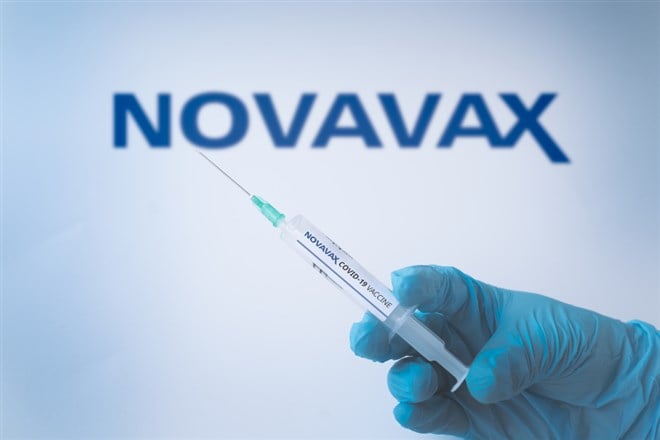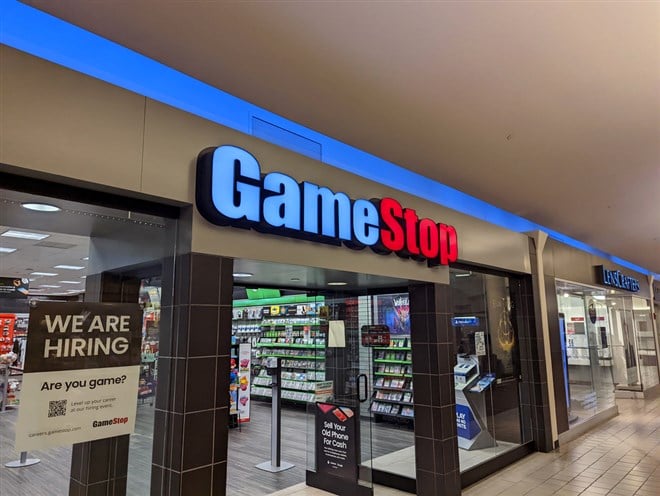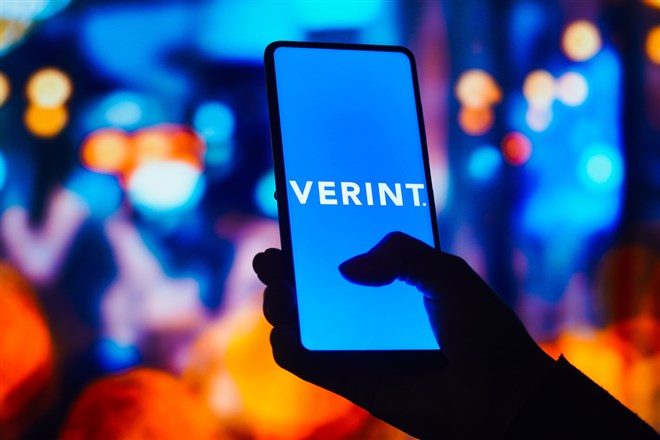Ticker Reports for June 6th
Novavax Stock's Recent Surge and Future Potential
Novavax (NASDAQ: NVAX) is a drug and vaccine manufacturer in the healthcare sector known for its efforts in the COVID-19 vaccine market. Novavax’s stock price has experienced a remarkable surge recently, attracting significant attention from investors and Novavax’s analyst community. What has propelled this surge, and is it sustainable?
Novavax's Ascent: Understanding the Catalysts for Growth
The recent upward trajectory of Novavax stock can be attributed to several key developments that have bolstered investor confidence in the company's prospects. Novavax's recent confirmation of its capacity to fulfill its production targets for the upcoming fall COVID-19 vaccination campaign has alleviated concerns about supply chain constraints and manufacturing capabilities.
Further solidifying its position, the U.S. Food and Drug Administration (FDA) has announced a definitive approval date of April 2025 for Novavax's COVID-19 vaccine, marking its transition from an Emergency Use Authorization (EUA) to full regulatory approval. This milestone holds significant weight, demonstrating the FDA's confidence in the vaccine's safety and efficacy. Additionally, the FDA's decision to prioritize the JN.1 strain, part of the Omicron subvariant family, for all COVID-19 vaccines in the fall vaccination campaign aligns strategically with Novavax's vaccine development efforts.
Adding another layer of complexity to Novavax's recent performance is the phenomenon known as a short squeeze. A short squeeze occurs when a stock with a high percentage of shares sold short experiences a rapid price increase. This price surge compels short sellers to buy back the shares to cover their positions, thus further propelling the stock price upward. The current market dynamics surrounding Novavax, characterized by a short interest exceeding 32.26%, coupled with the positive news catalysts, have created a fertile environment for a short squeeze.
Novavax's Position and Advantages
While Novavax has secured a notable presence in the COVID-19 vaccine market, it operates within a competitive landscape dominated by pharmaceutical giants such as Pfizer (NYSE: PFE) and Moderna (NASDAQ: MRNA). These established players possess significant resources, extensive distribution networks, and a proven track record of vaccine development and commercialization.
However, Novavax possesses a distinct advantage stemming from its protein-based vaccine technology. This technology contrasts the mRNA-based vaccines employed by Pfizer and Moderna. Protein-based vaccines have been utilized for decades, and their established safety profile could resonate with individuals who harbor reservations or concerns about the newer mRNA technology. This unique selling proposition has the potential to attract a broader demographic, including those who have been hesitant to receive mRNA-based vaccines.
To secure long-term viability and expand its market presence, Novavax must prioritize securing additional contracts and partnerships with governments and healthcare organizations worldwide. These agreements are essential for generating revenue, expanding production capacity, and solidifying its position as a reliable vaccine supplier in the global market.
Balancing Growth with Realism
Novavax has delivered impressive stock market performance in 2023, with its share price exhibiting a remarkable surge of over 300%. However, evaluating a company solely on its stock price movements, especially in the volatile biotechnology sector, can be misleading. It is crucial to look into Novavax’s financial statements to gain a more comprehensive understanding of its underlying performance.
Novavax's Q1 2024 earnings report, published on May 10, 2024, reveals a revenue of $94 million. This figure falls short of the company's projected full-year revenue of $400-$600 million, highlighting the challenges Novavax faces in translating its pipeline into consistent revenue generation. Adding to this concern, the company reported a net loss of $148 million for Q1 2024, continuing a trend of negative earnings. Furthermore, Novavax's earnings per share (EPS) for the most recent fiscal year is negative ($3.17), with a forward price to earnings (P/E) ratio of 58.25, signaling potential overvaluation.
Examining analyst sentiment reveals a degree of caution. Despite recent stock gains, data shows a consensus "Hold" rating for Novavax, with an average price target of $17.50. This suggests a potential downside of -16.5% from the current trading price. The range of analyst price targets is broad, spanning from a low of $10.00 to a high of $29.00, illustrating the uncertainty surrounding Novavax's future performance.
This data emphasizes the importance of discerning fundamental value from market sentiment. Novavax's price-to-book ratio of -3.47, coupled with a negative return on assets (-24.56%), suggests that the company's intrinsic value may not yet be reflected in its current market valuation. While factors like short interest, which currently sits at 32.26% of outstanding shares, contribute to price volatility, investors must carefully evaluate whether Novavax's operational performance and future earnings potential justify its current market capitalization of $2.84 billion.
Risks and Challenges for Novavax
While Novavax has made significant strides and holds a promising position in the COVID-19 vaccine market, several risks and challenges warrant careful consideration when evaluating its long-term prospects. The long-term demand for COVID-19 vaccines remains uncertain. The trajectory of the pandemic, the emergence of new variants, and the effectiveness of booster shots will significantly influence the demand for Novavax's products. A decline in vaccine demand could significantly impact the company's revenue streams.
Novavax operates in a highly competitive and rapidly evolving market. Larger pharmaceutical companies with greater resources and research and development capabilities constantly innovate and introduce new vaccines and therapies. To remain competitive, Novavax must maintain a robust pipeline of innovative products and adapt to changing market dynamics.
Regulatory hurdles represent another potential challenge. The pharmaceutical industry is subject to stringent regulations, and obtaining regulatory approvals for new vaccines can be a lengthy and complex process. Delays or setbacks in obtaining regulatory clearances could hinder Novavax's ability to bring new products to market or generate revenue.
Novavax's recent achievements, particularly its ability to meet fall vaccine demand, secure a definitive FDA approval date, and its unique protein-based vaccine technology, position it as a noteworthy contender in the COVID-19 vaccine arena. However, it is crucial to acknowledge that the company operates within a dynamic and competitive landscape characterized by evolving demand, intense competition, and inherent regulatory risks. While Novavax offers investors potential for substantial returns, especially in the near term, it is paramount to approach this investment opportunity with a balanced perspective, recognizing both the potential rewards and the inherent risks.
Elon's New Device is About to Shock the World
Using this device you see above…
Elon Musk just tested a new type of A.I. that according to Wired Magazine will usher in…
"The next step in human evolution."
GameStop Stock Update: What's Driving Today's Prices?
If fundamental investors are investigating, then the price action behind shares of GameStop Corp. (NYSE: GME) other than a few tweets that would be considered borderline stock manipulation from Keith Gill, A.K.A. 'Roaring Kitty.' This is not the first time Kitty has come on the scene to make GameStop stock soar.
In 2021, the online persona sent tweets and YouTube videos, making bold assumptions about valuing GameStop. Three years later, these assumptions have yet to take root. Because 2021 brought lower interest rates and cheap money into the economy, investors found it easy to get behind risky stories, but that’s not the case today.
A high-interest rate environment, worrying inflation, and the growing trend of stagflation (low economic growth and high inflation) make the perfect cocktail for stocks like GameStop, or ‘meme stocks,’ to find it hard to survive long. Here’s why the recent price action may be short-lived on a fundamental basis.
What Investors Need to Know About GameStop’s Weak Financials
Taking recent data within the company’s fourth quarter 2023 earnings results, investors can find trouble beyond contracting sales, which fell to $1.8 billion from $2.2 billion a year prior (an 18% decline).
Investors tend to focus on the bottom line in a company’s income statement, precisely the net income, to drive their valuations and investment conclusions. However, this is often a misleading number to be wary of. Net income can be manipulated by a few accounting loopholes, which can hide potentially harmful trends under the rug.
GameStop’s financials show a net income of $6.7 million in the past quarter, compared to a net loss of $313.1 million a year prior. Of course, that would seem extremely bullish until investors read further down to the number of outstanding shares.
The fourth quarter of 2022 carried 304.2 million shares outstanding, while the past quarter reported 305.2 million. So, if the company made $6.7 million in net income, why would it issue shares and dilute shareholders?
Well, it’s because the business didn’t make money, and here’s how to tell. Free cash flow (operating cash flow minus capital expenditures) is a more thorough way to measure a business’s profitability, which cannot be easily manipulated through accounting gimmicks.
GameStop's FCF was negative by roughly $18.7 million in the past quarter. Last year, the company had a positive FCF of $326.6 million due to rolling over its tax expense and using cash raised from share dilution to postpone the need to take on further accounts payable.
As the business ran out of ways to finance its ongoing operations again, it saw the need to raise its stock price to unjustifiably high levels to issue more expensive shares, as no institution in its right judgment would lend money to GameStop through bonds.
GameStop Stock Forecast For 2024 Isn’t Rosy
At least, that's what Wall Street analysts believe. With a current consensus price target of only $7 a share for GameStop stock, today's prices' potential downside is 77.8%.
More than that, the stock has very little institutional ownership—only 29.2% today—a sign that so-called ‘smart money’ wants to stay away from this company. Over the past month, GameStop’s short interest increased by 6.3% to cap Roaring Kitty’s attempt to send this stock flying again.
Too many negative factors suggest the stock has reached a top outside of further manipulation. Still, one of the factors carrying the most weight is the overall state of the economy today.
U.S. GDP growth was revised down to 1.3% over the past quarter, while inflation remained above 3% during that time, a dynamic befitting of a phenomenon called inflation. Because of this, the largest asset managers and retail investors will focus on growth above all else, and GameStop won’t deliver on that requirement.
More than that, the stock is fighting against cyclically high interest rates, which tend to give the overall market a ‘risk-off' perspective and further drive capital away from stocks with an uncertain future. Unfortunately, GameStop is also part of consumer discretionary stocks, which are negatively affected by high interest rates as well.
Free cash flow reigns king in these environments, and that’s just something GameStop can’t give investors right when they need it most.
Biden's Plan to "Strong Arm" Trillions From U.S. Citizens
Dave Ramsey Is Dangerously Wrong And Here's Why>>
Asked whether we're on the cusp of a US Dollar crash, Dave Ramsey made a stunning miscalculation while live on air:
"Am I worried about this? Absolutely not."
Frankly, I've never seen someone so confident in being wrong…
Because what's happening to the US Dollar is not something you should "keep an eye on"…
But instead, is an imminent threat you should get ahead of right NOW.
Verint Systems Impresses With Strong Earnings
While all eyes are on Nvidia, whose stock surged by almost 5% yesterday, overtaking Apple to become the second most valuable company in the world, only behind Microsoft, with a market cap hitting $3 trillion, another tech company, Verint Systems (NASDAQ: VRNT), put in an impressive display.
Shares of the $2.1 billion technology company surged by 23% on Wednesday and closed above its short-term resistance, indicating a momentum shift in its trend. So, let's take a closer look at the company and its recent earnings results to see if now is the opportune time to buy.
Verint's Recent Earnings Performance
Verint Systems reported quarterly earnings of $0.59 per share and revenue of $221.28 million on Tuesday after the market closed, surpassing the consensus estimate of $0.54 per share. This marks an earnings surprise of 9.26%, compared to $0.53 per share a year ago. In the previous quarter, Verint exceeded expectations with earnings of $1.07 per share against a forecast of $0.99, an 8.08% surprise. Over the past four quarters, the company has surpassed consensus EPS estimates three times.
Notably, the company also increased its outlook for fiscal 2025. Verint said it sees opportunities for Artificial Intelligence (AI) to significantly boost the contact center market. The company now expects full-year sales of $933 million, with adjusted earnings of $2.90 per share versus the consensus of $2.88 per share.
An Overview of Verint Systems
Verint Systems provides global customer engagement solutions, forecasting, scheduling, analytics, real-time assistance, and fraud and security solutions. Its Verint Open platform helps brands increase CX automation across various touchpoints, including contact centers, back offices, branches, websites, and mobile apps. Verint serves multiple industries, including banking, insurance, public sector, retail, and telecommunications.
Its stock, VRNT, is trading at the high end of its 50-day range after yesterday's surge higher. It is now 13.8% away from its 52-week high and 88.59% above its 52-week low. Following its earnings report, Verint's stock surged 23% on Wednesday, boosting its year-to-date performance to over 28% and outperforming its sector and the overall market. The stock has cleared all significant short-term resistance and moving averages after briefly trading near its 200-day SMA and support on Tuesday. This surge could signal an important trend shift for Verint.
Verint Systems: Analysts Agree on Moderate Buy
Five analysts have a consensus rating of moderate buy on Verint's stock, with a price target of $35.20. Following the recent earnings report, Needham & Company LLC reiterated its buy rating with a $40 price target. At the same time, the Royal Bank of Canada maintained its outperform rating, setting a price target of $36.
Despite the positive analyst sentiment, there is a short interest of 4.54%, equaling 2.7 million shares, which has increased by 23.8% from the previous month.
Verint Systems' Stock Rally Fueled by Strong Earnings and Analyst Confidence
A concerning aspect for shareholders is the pattern of consistent insider selling over the past twelve months, with seven insiders selling $12.94 million worth of stock and no insider buying. Insider ownership currently stands at 1.7%. Additionally, institutional outflows have significantly outpaced inflows, with $321 million in outflows compared to $176 million in inflows over the past year.
Verint Systems' strong earnings performance and positive analyst sentiment have driven a notable rally in its stock, positioning it as a recent standout performer amidst broader market movements. However, the persistent insider selling and significant institutional outflows warrant potential caution for potential investors.






0 Response to "🌟 GameStop Stock Update: What’s Driving Today’s Prices?"
Post a Comment